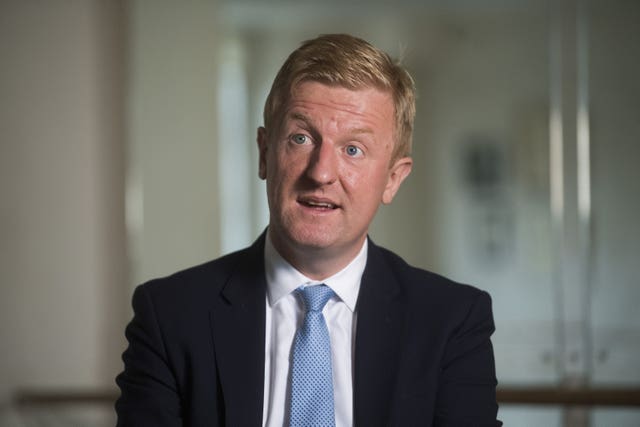
Matt Frei 10am - 12pm
24 February 2021, 13:04

The former prime minister – now a Facebook executive – said the social network had no choice but to block news on the service last week.
Facebook’s stand-off with Australia over the sharing of news on the social network was the result of a “fundamental misunderstanding” about the platform’s relationship with publishers, Sir Nick Clegg has said.
The former deputy prime minister, who is now Facebook’s vice president of global affairs, said assertions that the firm took original content for its own benefit were false.
Last week, the social network announced it was stopping the sharing of news on the platform in Australia over a proposed law in the country that would compel internet firms to pay news organisations.
Last week’s move by Facebook to stop sharing news in Australia left many people rightly asking: what on Earth was all that about?
At the heart of it is a fundamental misunderstanding of the relationship between Facebook and news publishers. 🧵 https://t.co/A5An9caQ70
— Nick Clegg (@nick_clegg) February 24, 2021
Australian politicians have proposed forcing digital businesses to reach paid-for-news agreements with media companies with draft legislation that could create a so-called News Media Bargaining Code.
The code would create an arbitration panel to set a binding price for news in situations where Google and Facebook do not reach deals with media businesses whose original journalism they link to.
Facebook argued the proposed Bill was unfair and chose to stop allowing news on the platform, but has now lifted that ban after reaching a resolution with the Australian government over amendments to the Bill.
Writing online in a blog post titled The Real Story Of What Happened With News On Facebook In Australia, Sir Nick said that while it was “understandable” that some news publishers “see Facebook as a potential source of money to make up for their losses”, it would not have been fair to be able to demand a “blank cheque”.
“That’s what the Australian law, as it was proposed, would have done,” Sir Nick said.

“Facebook would have been forced to pay potentially unlimited amounts of money to multinational media conglomerates under an arbitration system that deliberately misdescribes the relationship between publishers and Facebook — without even so much as a guarantee that it is used to pay for journalism, let alone support smaller publishers.”
He argued it was “like forcing carmakers to fund radio stations because people might listen to them in the car, and letting the stations set the price”.
Culture Secretary Oliver Dowden is set to meet with Facebook executives over the tech giant’s decision after Downing Street said it was “concerned” about the situation.
Sir Nick said Facebook was “more than willing to partner with news publishers” and pointed to its Facebook News service, which pays news publishers for their content and recently launched in the UK.
That feature includes deals with The Guardian, Telegraph Media Group, Financial Times, Daily Mail Group, Sky News and others.
The former deputy prime minister said Facebook remained open to discussing greater regulation of the tech sector.
“There are legitimate concerns to be addressed about the size and power of tech companies, just as there are serious issues about the disruption the internet has caused to the news industry,” he said.
“These need to be solved in a way that holds tech companies accountable and keeps journalism sustainable. But a new settlement needs to be based on the facts of how value is derived from news online, not an upside-down portrayal of how news and information flows on the internet.
“The internet needs new rules that work for everyone, not just for big media corporations.
“By updating internet regulation, we can preserve what’s best about it — the freedom of people to express themselves and entrepreneurs to build new things. New rules only work if they benefit more people, not protect the interests of a few.”